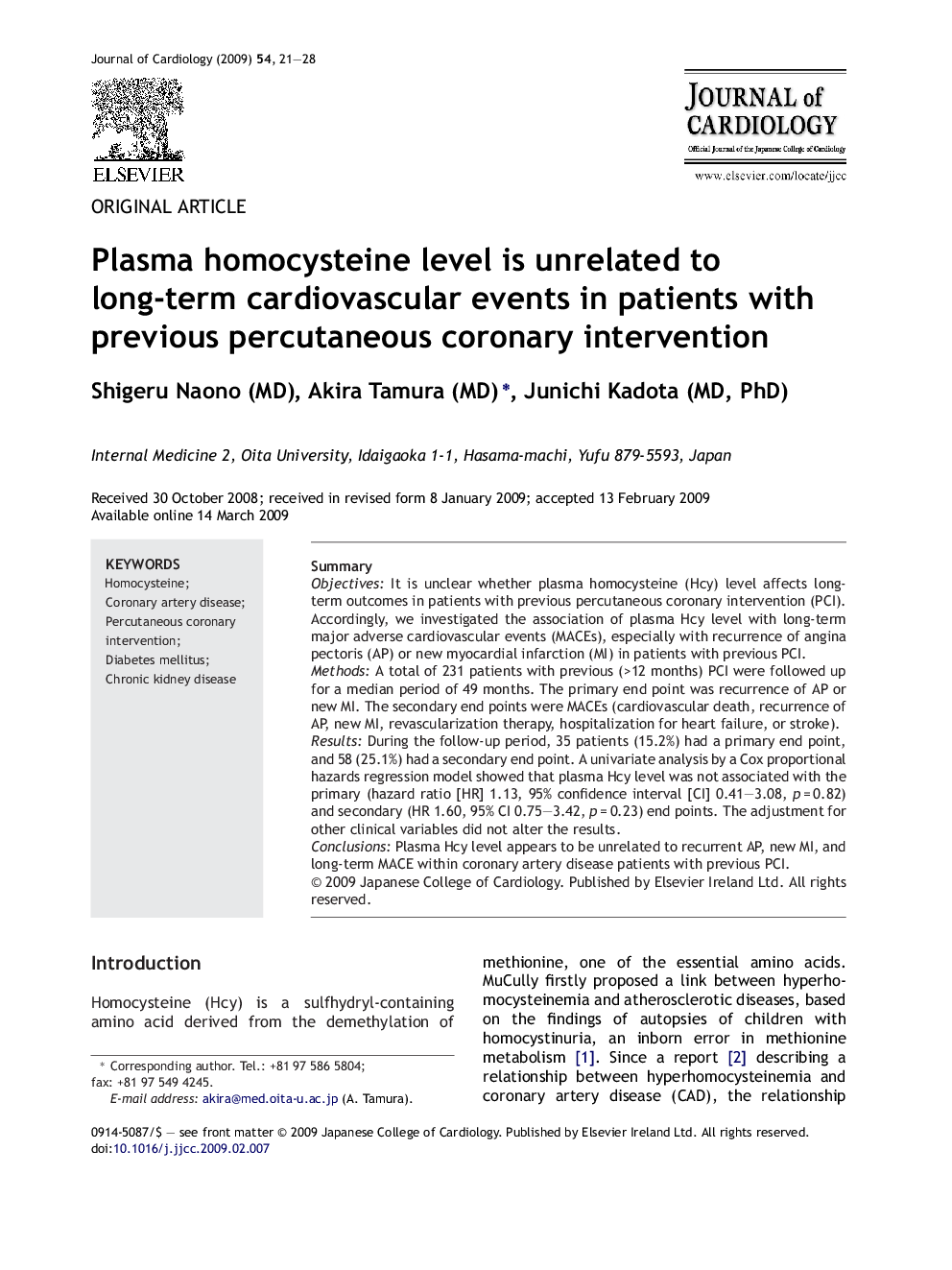| Article ID | Journal | Published Year | Pages | File Type |
|---|---|---|---|---|
| 2963743 | Journal of Cardiology | 2009 | 8 Pages |
SummaryObjectivesIt is unclear whether plasma homocysteine (Hcy) level affects long-term outcomes in patients with previous percutaneous coronary intervention (PCI). Accordingly, we investigated the association of plasma Hcy level with long-term major adverse cardiovascular events (MACEs), especially with recurrence of angina pectoris (AP) or new myocardial infarction (MI) in patients with previous PCI.MethodsA total of 231 patients with previous (>12 months) PCI were followed up for a median period of 49 months. The primary end point was recurrence of AP or new MI. The secondary end points were MACEs (cardiovascular death, recurrence of AP, new MI, revascularization therapy, hospitalization for heart failure, or stroke).ResultsDuring the follow-up period, 35 patients (15.2%) had a primary end point, and 58 (25.1%) had a secondary end point. A univariate analysis by a Cox proportional hazards regression model showed that plasma Hcy level was not associated with the primary (hazard ratio [HR] 1.13, 95% confidence interval [CI] 0.41–3.08, p = 0.82) and secondary (HR 1.60, 95% CI 0.75–3.42, p = 0.23) end points. The adjustment for other clinical variables did not alter the results.ConclusionsPlasma Hcy level appears to be unrelated to recurrent AP, new MI, and long-term MACE within coronary artery disease patients with previous PCI.
